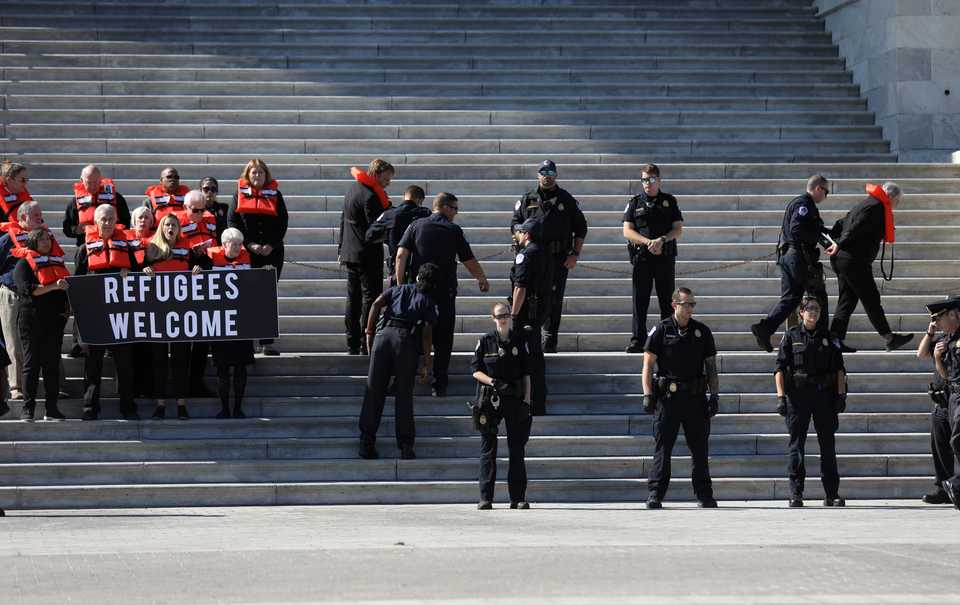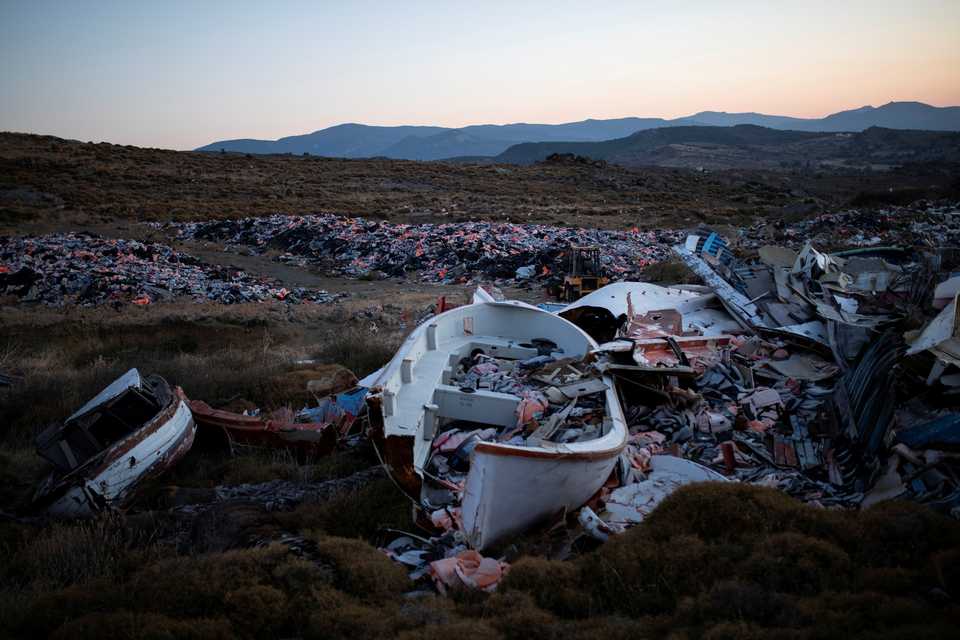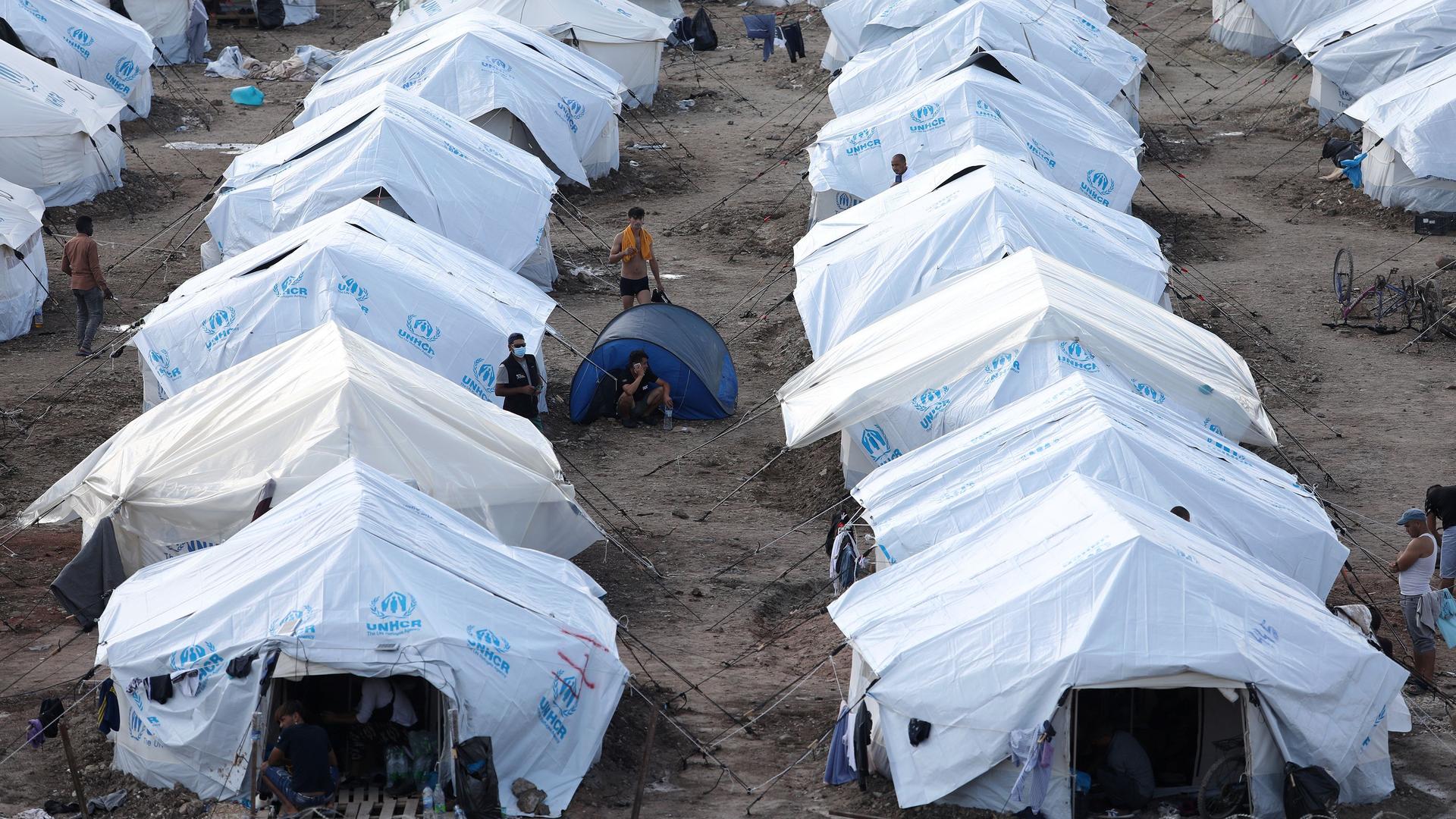Across the world, particularly in the Middle East, severe political conflicts have led to several refugee crises from Syria to Iraq and Yemen.
The brutal Syrian civil war has displaced half of the country’s population as millions of Syrians have left their homeland, seeking refuge in countries like Turkey and Lebanon.
While Ankara hosts the biggest refugee population in the world, leading developed countries like the US and Australia have lowered their refugee quota in record numbers, according to a recent Human Rights Watch (HRW) report.
Last year, the US accepted just 481 Syrians despite the fact that at least 600,000 refugees from the war-torn country needed shelter, the HRW reported.
The drop amounts “a 96 percent drop from FY [Fiscal Year] 2016,” said the HRW report.
“The 11,814 refugees admitted to the US in fiscal year 2020, between October 1, 2019 and September 30, is the lowest annual admissions number on record and an 86 percent drop from the nearly 85,000 admitted in FY 2016,” the report indicated.
“In Australia, the government’s 2020-21 budget shows a 5,000-place cut in refugee admissions,” the report added.
The anti-refugee sentiment across the US is increasing at alarming levels as the presidential elections approach.
In particular, President Donald Trump has played his anti-refugee political card to win more votes, as many Americans feel threatened by the arrival of migrants and refugees.

Earlier this month, Trump bluntly accused his Democratic opponent saying, “[Joe] Biden will turn Minnesota into a refugee camp,” during a speech in the swing state. He received strong applause from the audience.
Trump has also launched a political campaign to build a wall to prevent south and central American migrants from reaching the US.
The terrible dilemma of refugees
While politicians like Trump try to turn refugees into scapegoats, more have continued to fall victim to political conflicts across the Middle East and other conflict-torn countries.
Under the increasing clout of economic difficulties, the HRW report also says that Syrian refugees feel people and the government are unwelcoming in Lebanon, pushing them to move towards European territories by taking dangerous sea routes.
Many of them have already died across the Mediterranean Sea as their boats capsized and have sunk in different incidents. But the Assad regime has still been busy conducting more military operations to claim Idlib, the last opposition stronghold, causing another wave of exodus.

Tens of thousands of Ethiopian migrant workers have also been stuck between Saudi Arabia and its Houthi enemies during the Yemen civil war. A large number of them have been kept in Saudi-run detention centres, where the conditions are unlivable.
Some have reportedly died due to poor health conditions and some have committed suicide.
In Myanmar, a Buddhist-majority country, hundreds of thousands of Rohingya Muslims have also faced terrible treatment from the country’s military under de facto leader, Aung San Suu Kyi, who was awarded the Nobel Peace prize in 1991. Now the same leader faces genocide accusations from different corners of the world.
Most of the Rohingyas fled to Bangladesh, a neighbouring country, living in refugee camps.
Bangladesh’s Kutupalong is the largest refugee settlement in the world according to UNHCR, hosting more than 600,000 refugees alone.










Discussion about this post